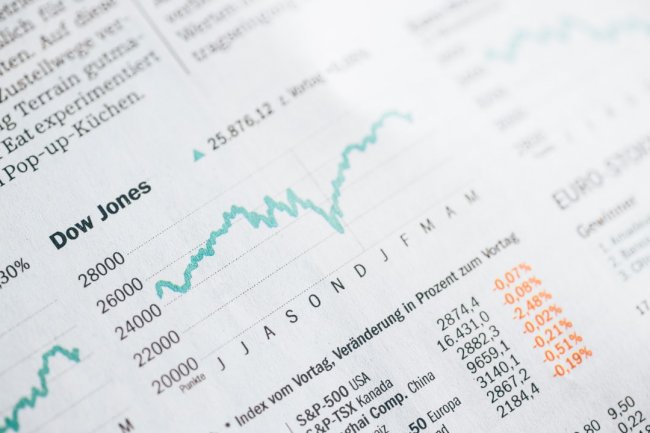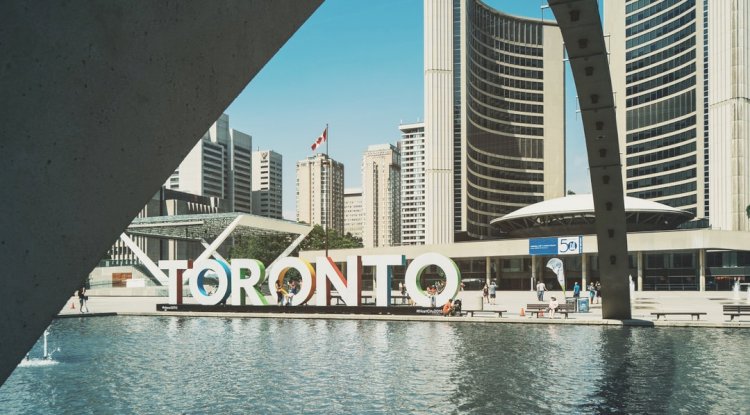You won’t believe which Country is tagged the Fastest growing Economy
In total, sub-Saharan Africa can register GDP growth of 3.5%. What makes this year's prediction so interesting for Africa is that it is an African nation that seems to be the economic front-runner, ahead of international heavyweights such as China in India.

The IMF divides the 46 listed countries into three groups: oil exporters, middle-income countries and low-income countries. The group of oil exporters, with a growth rate of 2.0%, is doing less well than middle-income countries, with 3.4% and low-income countries, with 5.3%, a trend that could be observed in 2018, as well. In total, sub-Saharan Africa can register GDP growth of 3.5%. What makes this year's prediction so interesting for Africa is that it is an African nation that seems to be the economic front-runner, ahead of international heavyweights such as China in India.
According to (CNN) last year 2018— Ethiopia, Africa's second most populated country, was forecast to be the fastest growing economy in Sub-Saharan Africa in 2018, according to the data from the IMF.
Ethiopia's economy was predicted to have grown by 8.5% last year. The figures signal continued economic expansion following a long period of impressive growth. In the last decade, Ethiopia has averaged around 10% economic growth, according to the IMF.
To boost the economy, the country is pursuing a number of large-scale infrastructure projects, including the Grand Renaissance Dam and a railway network.
It will surprise you to note that the world's fastest-growing economy is located in Africa and most astonishingly Ghana is number rated the Fastest Growing Economy in Africa in 2019 – IMF
Ghana is expected to become the fastest growing-economy in sub-Saharan Africa with a GDP growth rate of 8.8% in 2019, according to International Monetary Fund’s (IMF) just-released 2019 GDP growth projections.
According to the IMF Ghana’s macroeconomic performance has significantly improved in the last two years under the Extended Credit Facility arrangement.
The latest report also suggests growth was robust in the first three quarters of 2018, on the back of oil production.
Inflation has continued to decline, to 9% in January 2019, within the Bank of Ghana’s band around the inflation target.
“The fiscal position (excluding financial sector-related costs) has continued to improve in 2018, despite persistent revenue collection challenges; and the current account deficit was lower than anticipated,” the IMF noted.
The release further mentioned that Bank of Ghana resolved nine insolvent banks over a period of 18 months, in line with its commitment to clean up the banking sector; and structural reforms to strengthen public financial management and oversight of the state-owned enterprises have continued.
Meanwhile, the report states that the three biggest economies in the region - Nigeria, South Africa and Angola will grow the slowest.
Nigeria’s GDP growth rate is projected to be 2.1%. South Africa will be 1.2% and Angola 0.4%.
Ghana only recently discover crude oil
About Ghana’s Economic outlook
Ghana a small west African country with a po[pulation of about 29m is the world's second-biggest producer of cocoa, which is probably also a reason why the West African country is the continent's and the world's leader when it comes to increased economic strength. But, unlike in the agricultural sector, in which a lot of Ghanaians are playing a role, investments in the mining and oil sectors have been largely foreign-led. According to Sarkodie, this is a problem, even though these investments have a long-term effect.
Adu Owusu Sarkodie, from the University of Ghana, believes the main source of growth is the oil sector. "We have discovered new oil fields," he told DW. "Companies have started operating," he said. "They have intensified their operations." In the list of the African countries growing most rapidly economically, Ghana is closely followed by its neighbor Ivory Coast, with 7.5%, and Ethiopia, with 7.7%. It is interesting that the growth rate from 2018 to 2020 of those two countries appears to be consistent, while Ghana's growth is predicted to decline again in 2020.
Oil is not the only factor driving Ghana's economy. "The nonoil sectors, agriculture, manufacturing and services, they are also picking up. Now they are all growing positively," Sarkodie said.
The agriculture sector has received a major boost over the past two years, thanks to a strong focus by policymakers on food and jobs. For example, 200,000 farmers received improved seeds and fertilizers. The sector remains a major backbone of Ghana's economy. According to Agriculture Minister Owusu Afriyie Akoto, the program has led to a good harvest across the country. "We are expecting a bumper crop because of the impact that this great program has had on agriculture, even in its infancy," he said.
Where there are winners, there are also losers. Angola comes in last on the list of African countries, with a predicted economic growth of just 0.4%. Last year it suffered a decline of 1.7%. South Africa is also far behind, with an expected growth rate of only 1.2%, an increase of 0.4% on 2018. Third from last is oil giant Nigeria, with a growth rate of 2.1%.
To be able to attract investors, countries need well-designed reforms to assure entrepreneurs of returns. That is what Ghana has been trying to do. Three years ago, the government secured a loan from the IMF of $925.9 million. The arrangement, which ended in early April, aimed to restore debt sustainability and macroeconomic stability in the country in order to foster a return to high growth and job creation while protecting social spending. Several economic reforms, including reducing the budget deficit and cutting down on corruption, were rolled out. According to Ghana's finance minister, Ken Ofori-Atta, some of these measures have repositioned the economy: "Inflation is at a single digit, which is good. The growth has been strong, 6% through the third quarter of last year. Our budget deficit has gone down and we are also getting surpluses in our current account."
Reference:
Press Release
Ministry of Finance
Finance Drive, Accra.
- Ghana,
Silja Fröhlich
DW RECOMMENDS
IMF Economic data Report on Africa, 2019,
CNBC Africa,
CNN.
What's Your Reaction?

























